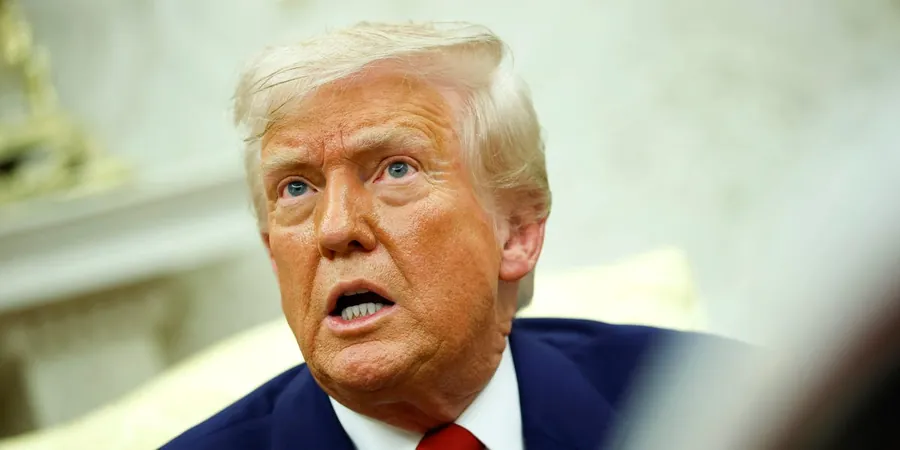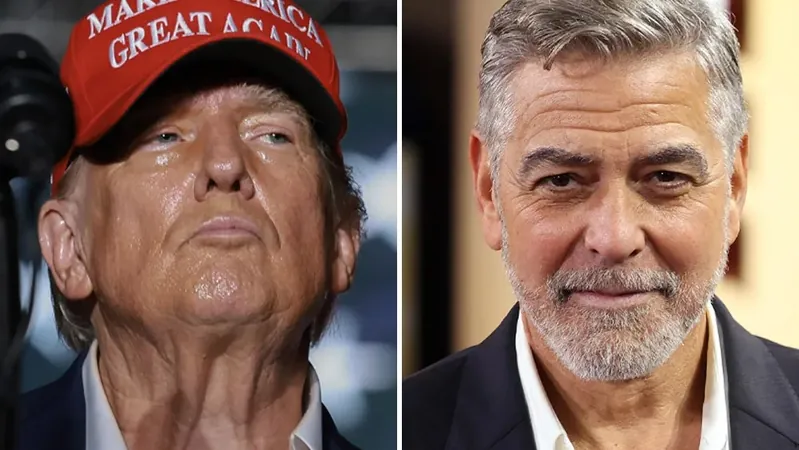
Bond Market Rebels Against Trump's Tariff Truce: What's Really Going On?
2025-04-09
Author: Emma
In a surprising turn, President Trump's recent announcement to suspend new tariffs for 90 days hasn't given the bond market the jolt he hoped for. Despite his assurances, bond yields are actually moving in the wrong direction.
On Wednesday, bond yields spiked significantly, standing at about 4.4% for the 10-year Treasury—just shy of the day’s peak of 4.45%. This is contrary to Trump’s goal of lowering borrowing costs for Americans.
Treasury Secretary Scott Bessent previously stated that spending cuts and government efficiency would lead to falling yields, but that vision seems far from reality as investor confidence dwindles amid escalating trade tensions.
As new tariffs on China took effect, with overall rates skyrocketing to an astonishing 125%, investors began unloading U.S. Treasuries. This sell-off comes at a time when fears of a recession loom large and stock markets are stumbling.
Why Are Investors Abandoning Bonds?
In typical scenarios, bonds serve as a safe haven during market turmoil, with yields typically falling as investors flock to the security of Treasuries. However, that’s not happening now.
Market analysts have noted a growing skepticism regarding the U.S. as a reliable investment amid the ever-growing trade war. According to David Morrison, a senior market analyst, there is a palpable uncertainty about U.S. government debt as a safe refuge during such volatile times.
Lawrence Gillum, chief fixed income strategist at LPL Financial, emphasized that the current bond sell-off is an international trend. Should the economy contract, he predicts that yields would eventually decrease.
Additionally, concerns arise that China, holding $760 billion in U.S. Treasuries, may start selling off its assets as trade relations sour.
Another factor at play is the ‘basis trade’—a risky $800 billion bet by hedge funds on Treasuries. As Torsten Sløk from Apollo pointed out, these highly leveraged positions could lead to rapid sell-offs during unforeseen market shocks.
The Escalating Trade War
Trump's tariffs have propelled the U.S. into a trade battle not seen in over a century, intensifying points of contention with China. Following Trump's announcement of an additional 50% tariff on China, Beijing fired back with an 84% tariff on U.S. goods, urging America to amend its approach.
In a recent post on Truth Social, Trump expressed that China must soon realize that exploiting the U.S. is no longer viable. This ongoing feud raises crucial questions about the future stability of both the U.S. economy and the bond market.
As the trade saga continues to unfold, the bond market's rejection of Trump's latest moves implies that investors are bracing for more stormy weather ahead.









 Brasil (PT)
Brasil (PT)
 Canada (EN)
Canada (EN)
 Chile (ES)
Chile (ES)
 Česko (CS)
Česko (CS)
 대한민국 (KO)
대한민국 (KO)
 España (ES)
España (ES)
 France (FR)
France (FR)
 Hong Kong (EN)
Hong Kong (EN)
 Italia (IT)
Italia (IT)
 日本 (JA)
日本 (JA)
 Magyarország (HU)
Magyarország (HU)
 Norge (NO)
Norge (NO)
 Polska (PL)
Polska (PL)
 Schweiz (DE)
Schweiz (DE)
 Singapore (EN)
Singapore (EN)
 Sverige (SV)
Sverige (SV)
 Suomi (FI)
Suomi (FI)
 Türkiye (TR)
Türkiye (TR)
 الإمارات العربية المتحدة (AR)
الإمارات العربية المتحدة (AR)